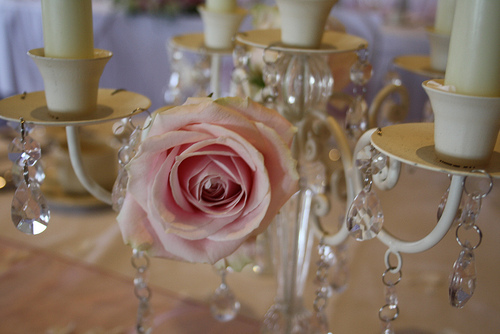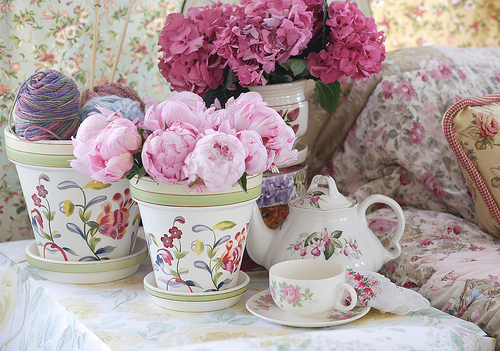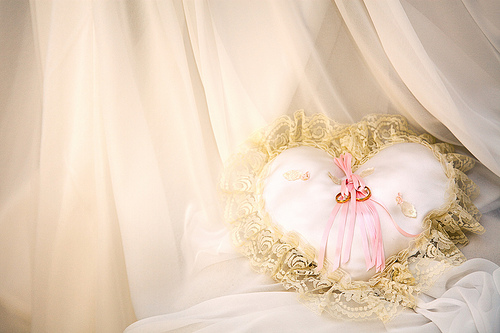I asked some friends, “What says ‘romance’ to you?”
Their answers varied:
“When my husband calls/texts me for no reason at all.”
“When my husband hides love notes around the house.”
“When he cleans the toilets.”
“When he’s attentive, chivalrous, and passionate.”
“When my boyfriend lets ME pick the movie.”
“When my husband reaches for my hand. In public and in private.”
“When he tells me ‘you’re special’ and means it.”
“When he cooks supper. Even if it is soup from a can.”
From my friends’ comments, I gleaned that everyone is wired differently. (Now granted, I asked only my women friends. Men’s answers, as we ladies know, would probably be off-the-charts opposite in comparison to their female counterparts. But then again…maybe not.)
Regardless–male OR female–each of us has our own love language. Things that make us swoon. Things that make us feel cherished and adored. Things that say I love you.
In today’s world of pre-packaged everything from A to Z, the real deal is often downplayed and even scoffed at. Artificial substitutes are easy, quick, and painless. Television and magazines promote it. Retail exacerbates it. (I mean, shouldn’t all of us aspire to the size 2 frame of the department store mannequin? You know the one–the inanimate, trendy-dressed gal in the window where all the other trendy gals her kind hang out.) We, too, can be worthy of romance once we understand how the concept works.
Harping aside, I believe real romance matters not because of Victorian-principled mindsets (though, that was indeed a lovely era), but because romance matters to God. He created it. He authored that intricate, mysterious, and sigh-worthy bond–between a man and a woman within a loving, committed, Christ-centered relationship. Ideally, the kind of relationship that doesn’t end after the “I DOs.”
As a woman, I’m drawn to God’s picture of real romance. The Biblical definition of love (1 Corinthians 13) models what real romance is. Not necessarily easy. Not quick. Not impatient. Not always hearts and flowers either.
Real romance is authentic.
It speaks the truth.
It takes the high road.
It breaks barriers.
It sets the stage.
It moves past comfortable.
It does “big” when “little” would do.
It fosters confidence.
It dodges discouragement.
It ignites.
It lingers long after the day is done.
As a contemporary Christian romance novelist, I believe the best stories are the ones stitched from various fabrics. And we’d like positive resolutions, but it may take a lot of sewing to get there.
In the beloved classic Yours, Mine, and Ours (one of my favorites), which stars Henry Fonda and Lucille Ball as Frank and Helen Beardsley, there’s a particularly poignant scene toward the end of the movie. One of their daughters (“Colleen,” I think) returns home from a dating disaster.
Helen Beardsley is in labor and the entire house is in chaos. As Frank tries to escort his wife outside to the car, Colleen bursts into tears and informs her step-father that her date is a “sex maniac.”
“Are all boys like this?” she asks, “Or am I the one with the problem?”
I especially love the following scene. Frank (Henry Fonda) speaks with eloquence and candor to the teenager about what real life AND real love/romance are all about. It’s quite the speech, loaded with nuggets of truth, still applicable to today. I hope you’ll check out this family-appropriate movie.
(A side note: Though there were a lot of liberties taken in the movie, this classic is based on the true story of Frank and Helen Beardsley and their large brood of 18 children. I’ve seen it multiple times and never realized that!)
******
What says “romance” to you?
PLEASE SHARE
The real deal in a fake world. Is it possible? (Click to Tweet)
The kind of relationship that doesn’t end after the I DOs and why it matters (Click to Tweet)
Photo Credit (candelabra): PassionforFlowers/Creative Commons
Photo Credit (flowerpots): gollymolly/Creative Commons
Photo Credit (Heart pillow): JuanAntonioCapo/Creative Commons
Happy Friday!
Blessings Always,





Comments 6
I love the Henry Fonda/Lucille Ball version of Yours, Mine, and Ours. SO fun!
Author
Melissa, me too! Best version, in my opinion.
Happy Weekend, friend!
Romance seems to have some sharp differences, in the way it’s seen by women and men. But they are not, I think, what those commonly assumed.
It’s fairly rare for men to ‘see’ the romantic gestures and ‘hooks’ with the same intensity women do. It’s not a question of non-appreciation – it’s a question of scale and context.
Men tend to have a more abstract view of romance – their romantic response is to events and achievements they consider worthwhile and compelling, which emphasize a certain set of values – like loyalty.
One of the most romantic movie scenes, for a man, is in “Black Hawk Down”, when two snipers ask to be disembarked from a helicopter to protect survivors from a helicopter crash in Mogandishu, knowing that they would probably not survive. It’s a love scene – just taken through a different lens.
And “Butch Cassidy and the Sundance Kid” is a romance for guys, for similar reasons – it’s about friendship and loyalty, even between criminals.
In a way it’s a step down from the female concept of romance, because it’s somewhat depersonalized. Women are in love with men, and men are in love with ideas…not necessarily fair, but to some degree, true.
My personal feeling is that this disconnect comes from fear. For men, a relationship is “me and you”; for women, it’s “Us”, and men find that terrifying. They see a loss of self-identity as implicit in a deep relationship – and their romantic imagery moves to elements and symbology which preserve it.
This is not to say that men can’t appreciate the same sort of things that some of your readers listed above – but they have to learn that these very personal touches are important to women.
(For men, romance is not about sex. At all.)
A PS, if I may –
One of the reasons that men shy away from making romantic gestures is that they are afraid that they may be promising something they can’t deliver – that there will be a call for a further or deeper gesture (or they’ll feel such a call) and they simply won’t know what to do.
Author
Andrew, I would certainly agree that men and women are polar opposites regarding perceptions of romance. At least in the context women perceive it.
For instance, I liked your movie analogies. While I would respectfully take issue with the element of “romance” in each (from my female POV), I can understand why men would view it as such. See–therein lies the difference. Men (typically) tend to think more visually. Women, on the other hand, think in terms of words (lots of them), actions, and heartfelt sentiments. That’s not to say we can’t have a “meeting of the minds” when relational issues are dealt with in an honest, open fashion. After all, the core foundation of all relationships is truth. And you’re right–understanding our loved ones’ verbal and non-verbal cues is integral to satisfying and productive relationships.
I think you hit the nail on the head about the self-exposure issue for men. Women want to dissect every nuance and motivation, while men prefer a less intrusive approach.
Thanks for sharing! Great, insightful comments!
Truth and openness is the key. And – respect. It’s far too easy to denigrate that which we don’t understand!
I do think that with men it goes beyond visual, to conceptual – the imagination that can surround a ‘beloved’ with a fuzzy golden halo.
For me – it was the idea of flight across an ocean. I read the stories of Lindbergh and Kingsford-Smith, and I wanted so much to emulate their achievements! It was certainly a ‘romance’, in that I idealized the process and the potential experience, and spent time dreaming, planning, working towards its achievement (which never took place). Flight through a starry night, above the drifting white clouds, the moon reflected on a boundless sea…and landfall in the dawn. I was intoxicated with the image.
Point being, I spent the ‘relational’ energy I had on this idea. I couldn’t be there for a person – I was there for my dream.
What I didn’t understand was that my dream would never, ever be there for me.
It could never love me back.